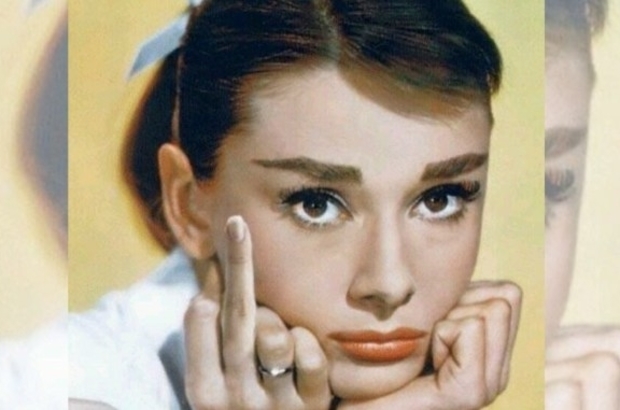ALICE DEVOY looks at the what, why and who of swearing.
Some words are more shocking than others. They have been deemed inappropriate, offensive or disrespectful, and are placed under the umbrella term of ‘swear words’. Swear words have the ability to shock because they violate social norms and transgress established barriers of what is and isn’t appropriate. You may recognise the following extract from the 2003 film Love Actually, in which the new housekeeper, Natalie (Martine McCutcheon), embarrasses herself in front of the Prime Minister (Hugh Grant) by swearing, and so verbally violates the cultural expectations.
Natalie: Hello David. I mean, Sir. Shit, I can’t believe I’ve just said that. And now I’ve gone and said ‘shit’. Twice. I’m so sorry, Sir.
Prime Minister: It’s fine, it’s fine. You could have said ‘fuck’ and then we’d have been in real trouble.
Natalie: Thank you, Sir. I did have a terrible premonition I was going to fuck up on the first day… Oh piss it!
The question is: are swear words really such a bad thing? Barbara LeMaster has identified that swear words refer to sex, excrement or religion. These three topics are considered ‘dirty’ and so bringing up these private matters in public is shocking. Of course, not everyone feels the effect of these words in the same way – your grandparents, for example, may be more shocked by an exclamation of ‘oh my God’ than you are. This is because, as Gillian Tett astutely put it, swear words are a ‘barometer for social norms’, which are ever-changing and shifting as society’s values shift. Should Natalie feel ashamed here? Or is her shame a perpetuation of a systematic problem manifested in language, specifically one concerning gender inequality.
Swear words aren’t necessarily a bad thing and they have been proven a truly practical cathartic effect, relieving pain and stress. One study has shown that people found it easier to hold their hand in freezing water with the assistance of expletives than without. They have also been suggested to be an important part of linguistic development – they are one of the ways that children learn to express themselves. Children are aware of swear words pretty much from the moment they learn to speak, with two-year-old boys knowing six swear words on average, and two-year-old girls knowing eight.
And yet at some point the way swear words are used shifts from the practical to a manifestation of gender inequality that is uncomfortable to say the least. Before they become teenagers, girls swear more than boys, using expletives 140 times in a given period compared with 99 times for boys. After they reach their teenage years however, the trend reverses, with girls using them 112 times compare with 335 times for boys. This suggests that swearing is wrapped up with the way we socially condition boys and girls differently. Perhaps, as girls grow up and become more socially aware, they feel the need to retract their bad language, whilst boys choose to assert themselves through swearing in order to appear ‘manly’.
During and after the American presidential campaign, Hillary Clinton was accused of being aggressive when she used strong language, with Fox News being outraged when she said the word ‘shit’ on the Graham Norton Show. Conversely, when President Trump referred to ‘shithole’ countries, there was no direct criticism of his foul language, only reports of his racism and bigotry.
The fact that the act of swearing is gendered is undeniably partly because the words themselves are gendered. Think ‘dick’, ‘bitch’, and, of course, ‘cunt’. In a study, Michael Gautier found that although ‘cunt’ was the most uncommonly used swear word for both genders, it was still used by 18.3% of men and only 10.7% of women, suggesting a woman is less likely to use the word because it refers to their bodies in a derogatory way. Interestingly, ‘cunt’ is etymologically more feminist than the word ‘vagina’, which comes from the Latin word for ‘sword sheath’, making it exist only in relation to a penis. If we return to LeMaster’s idea of swear words as a social barometer, then it would seem that ‘cunt’ is considered the most offensive of swear words because it refers to something that is taboo: women’s sexual organs and pleasure. Shockingly, whilst 60% of women can label a man’s anatomy correctly, only 35% can label their own, suggesting an absence of education and discourse concerning the female sexual organs.

Perhaps women could and should use ‘cunt’ to assert their place in the discourse, empowering themselves against its derogatory meaning and finding strength both in reclaiming their sexual experience as well as confronting expectations to be gentle, polite, and ‘lady-like’ (shudder). Indeed, feminist groups have always and are still continuing to use swear words for political means. ‘Cunt’ is becoming part of the feminist discourse. For example, the Oxford-based feminist group Cuntry Living is a safe place that is intended to ‘challenge patriarchy and share our experiences of oppression.’ Perhaps the growth of the feminist movement explains why ‘cunt’ is the only swear word that Gautier found to become more offensive between the years 2005-2009. Whilst most swear words were more generally accepted between these years, ‘cunt’ was accepted by 58% in 2005 and only 51% in 2009. In a similar vein, the female Russian activists Pussy Riot purposefully use a gendered expletive in their name, making it clear they have no qualms in causing outrage in a society that they want to criticise and change. The feminist movement is therefore beginning to recognise the historical gendered weighting behind language, and the importance of deconstructing and affronting it.
Swear words seem as much about ownership as anything else. Who can say this word? Who should say this word? Used correctly, swear words are a powerful weapon in the arsenal of language. Using these words goes deeper than a flippant comment, and we should recognise and harness the power of swearing, be it to shock, to offend, or to empower.
Featured image courtesy of eggplantemoji.com





